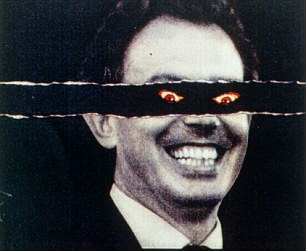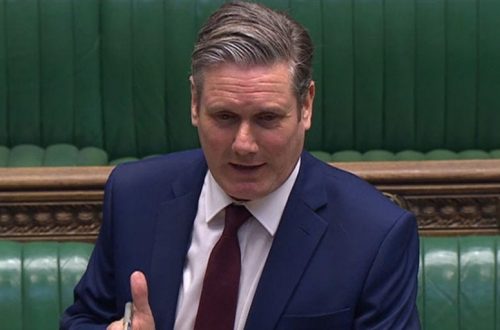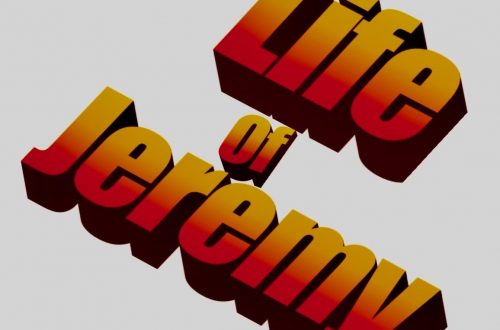Labour members will shortly decide who they believe is best placed to return them to government.
I previously contended that “modern” politics started in the early 1960s, and have looked at how governments changed in that period.
In the early 1960s the Conservatives had been in power for a decade, Macmillan (born 1894) was increasingly seen as out of touch and mishandling scandals like Profumo didn’t help. His successor Douglas-Home had a difficult task but kept Wilson’s majority to four in 1964.
By the late 1960s Wilson had devalued, there was industrial unrest, etc and Heath won in 1970.
Heath had a turbulent time with the three day week, etc and in February 1974 the electorate decided he didn’t run the country.
Move onto 1979 and Callaghan, who’d been propped up by the Liberals, had problems such as the winter of discontent and Thatcher was waiting.
In the mid 1990s Major’s government was in a mess. Less than six months after his 1992 victory Black Wednesday damaged the reputation for economic competence, the Conservatives were then split over Europe and he forced a leadership election in 1995, but his divided and scandal-ridden party was reduced to 165 seats in 1997 by Blair.
The 2007/8 “crash” happened on Brown’s watch, and with divisions and plotting Cameron replaced him in 2010.
Let’s consider when governments are re-elected.
In 1966 and October 1974 Wilson was, effectively, given the benefit of the doubt.
Move forward to 1983 and 1987 and Thatcher was dominant.
Major got the benefit of the doubt in 1992, having stabilised things and pledged to get rid of the Community Charge.
Blair was riding high in 2001 and still formidable in 2005.
The 2010 to 2015 coalition was stable and Cameron benefited in 2015.
2017 largely followed the trend, despite May’s appalling campaign.
2019 will long be discussed as, although the Conservatives were re-elected, Johnson can almost be seen as a change candidate while Corbyn suffered from entropy.
It’s possible to extract “rules”.
Governments are re-elected if they’re sure footed, or getting the benefit of the doubt, and things are stable: Wilson (1966 and October 1974), Thatcher (twice), Major (1992), Blair (twice), Cameron, May and Johnson, but it’s not unusual to be re-elected with fewer seats: Thatcher (1987), Major (1992), Blair (2001 and 2005) and May (2017). The electoral system can throw up oddities, but seats matter most.
“Events” can result in divisions, a breakdown of collective responsibility and governments change: Douglas-Home (continuity Macmillan), Wilson (1970), Heath, Callaghan, Major (1997) and Brown.
In sixteen elections the governing party has been re-elected ten times, a more than 50% advantage from incumbency. This suggests that the electorate are small “c” conservative, if it ain’t broke, don’t fix it.
It’s possible to look at scenarios.
Labour had some individually popular policies in 2015, 2017 and 2019, but to progress there needs to be trouble at t’[Conservative]mill, and somewhat more than the normal feet in mouths, arguments, occasional backbench revolts, etc that beset any government. Incumbency is a double-edged sword and there are many things, not necessarily of a government’s making, that can go wrong and what establishes a narrative is the way the government reacts.
Whether an opposition can establish its own narrative in the absence of significant government problems is uncertain. Kinnock was reckoned to have run a good campaign in 1987 but only gained 20 seats. It’s easy, and lazy, to complain about the “Mainstream Media”, this is fragmented and less significant than it once was. Governments do things, oppositions are either talking about what they’d like to do, or reacting to the government.
Labour has two targets. Forty fewer Conservative MPs eliminates their majority, but a coalition to replace them would be difficult to create and unstable. A majority Labour government would require over 120 more MPs which would probably only come from a meltdown like that of the Major or Brown governments; in 1997 Blair gained 145 seats, in 2010 Cameron gained 96.
1997 was a combination of extremes; Major and the Conservatives were extremely poor, Blair and Labour were extremely good.
A reasonably sure footed and stable government should be re-elected. A decent opposition should take marginal Conservative seats, but a poor opposition should lose marginal Labour seats.
Labour can prepare for an election but history suggests that their fate is not entirely in their hands, they will need a government in trouble. They may be well advised to eat bananas and throw the skins towards the Conservatives.





